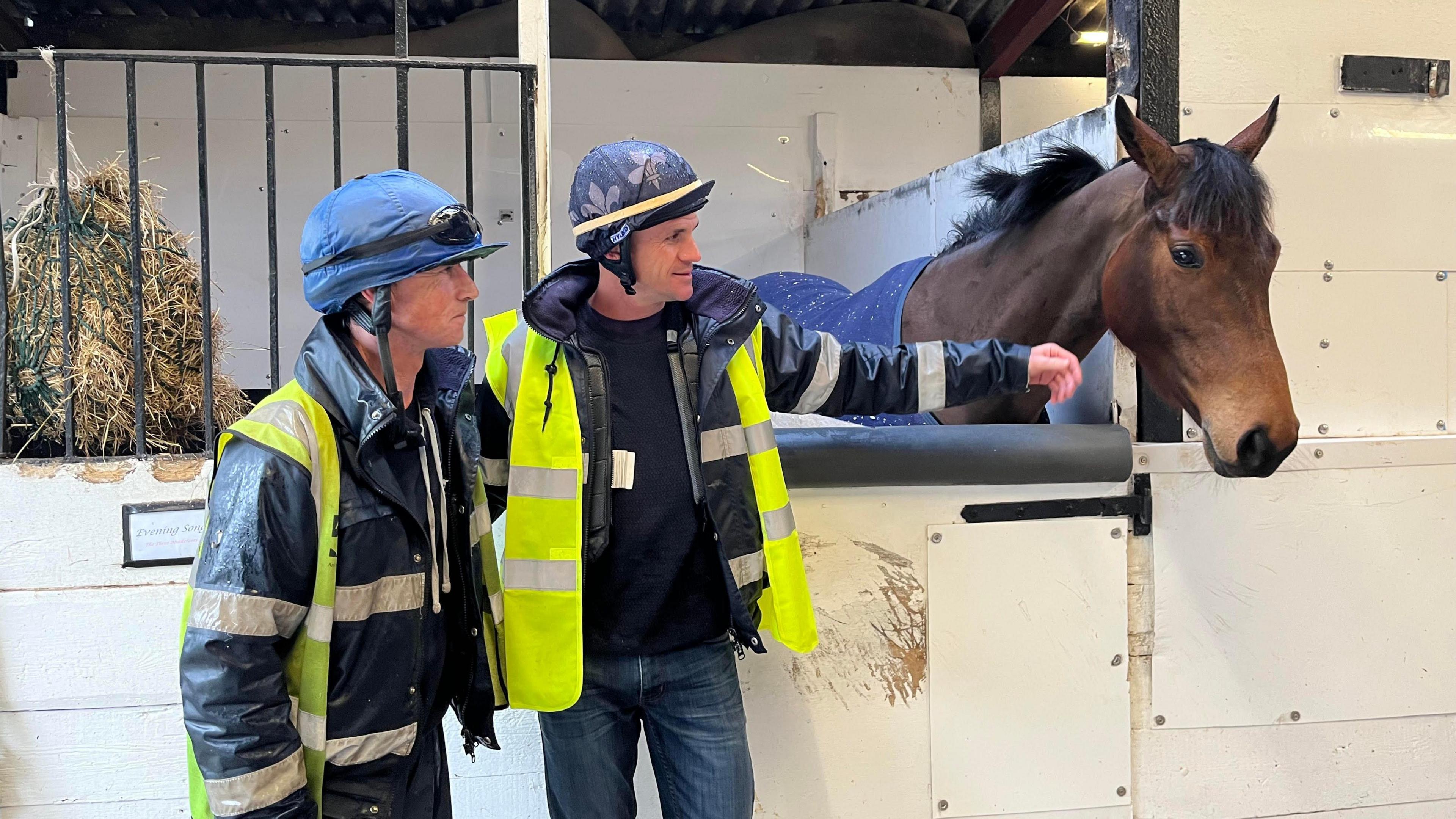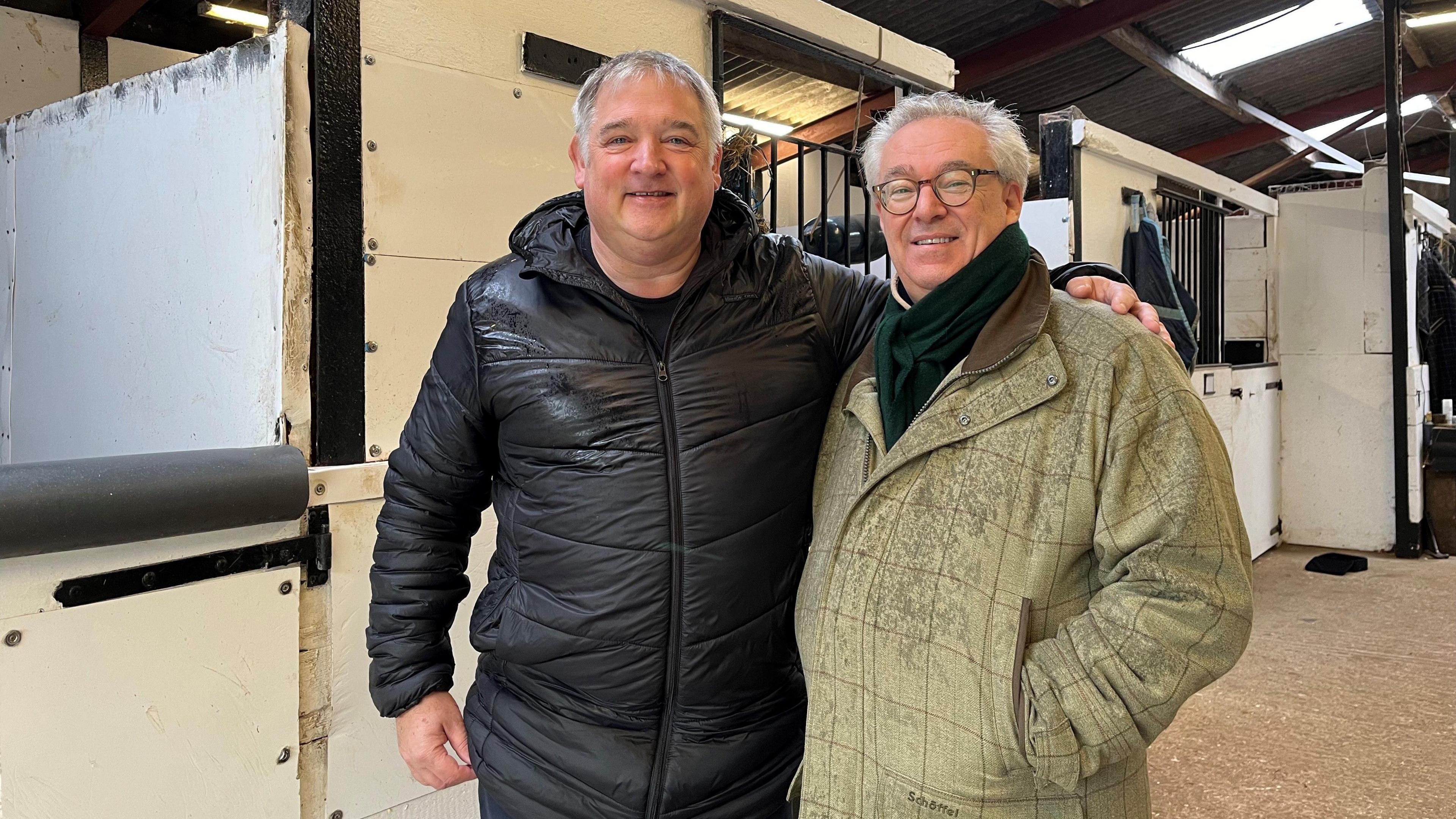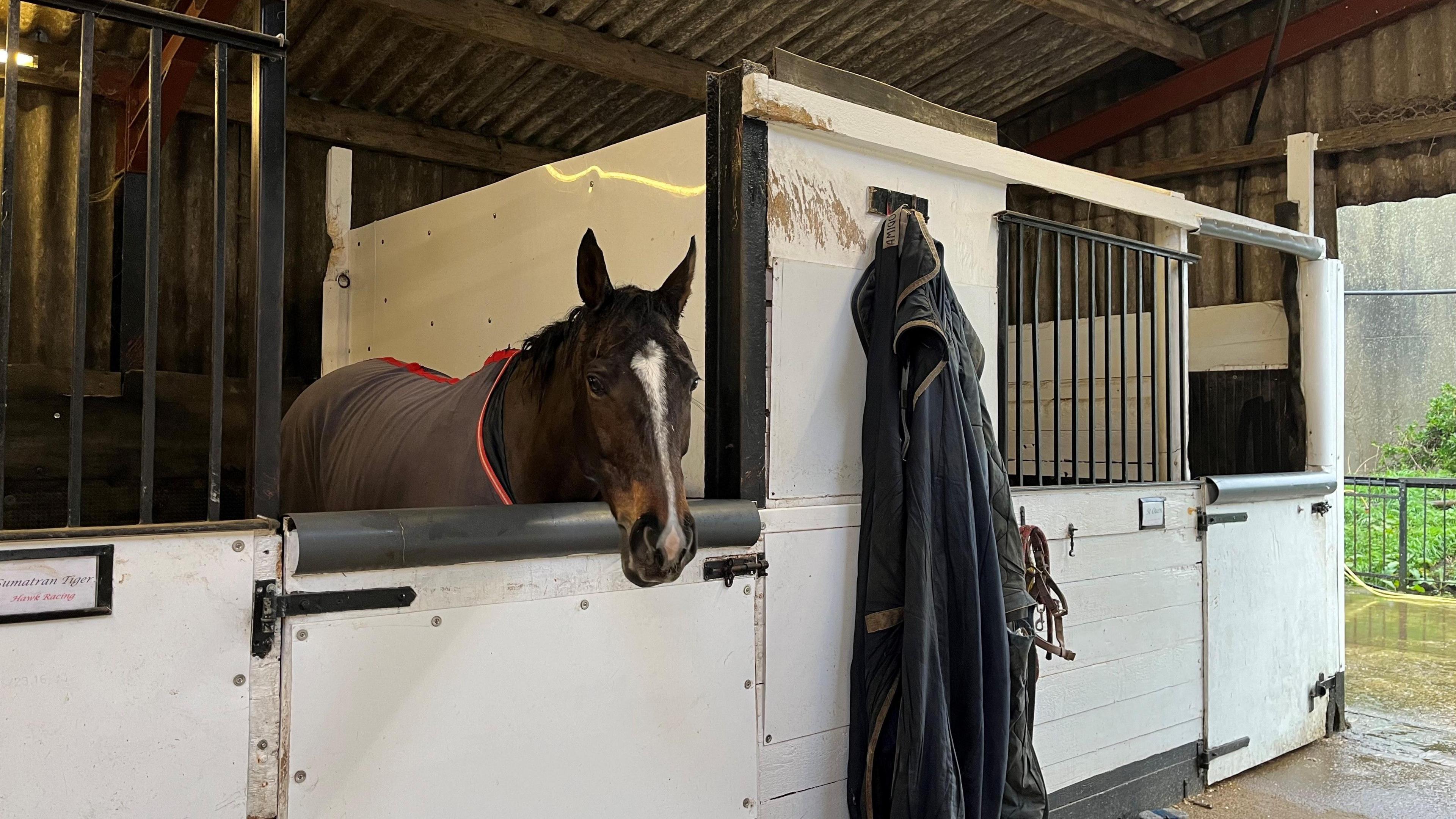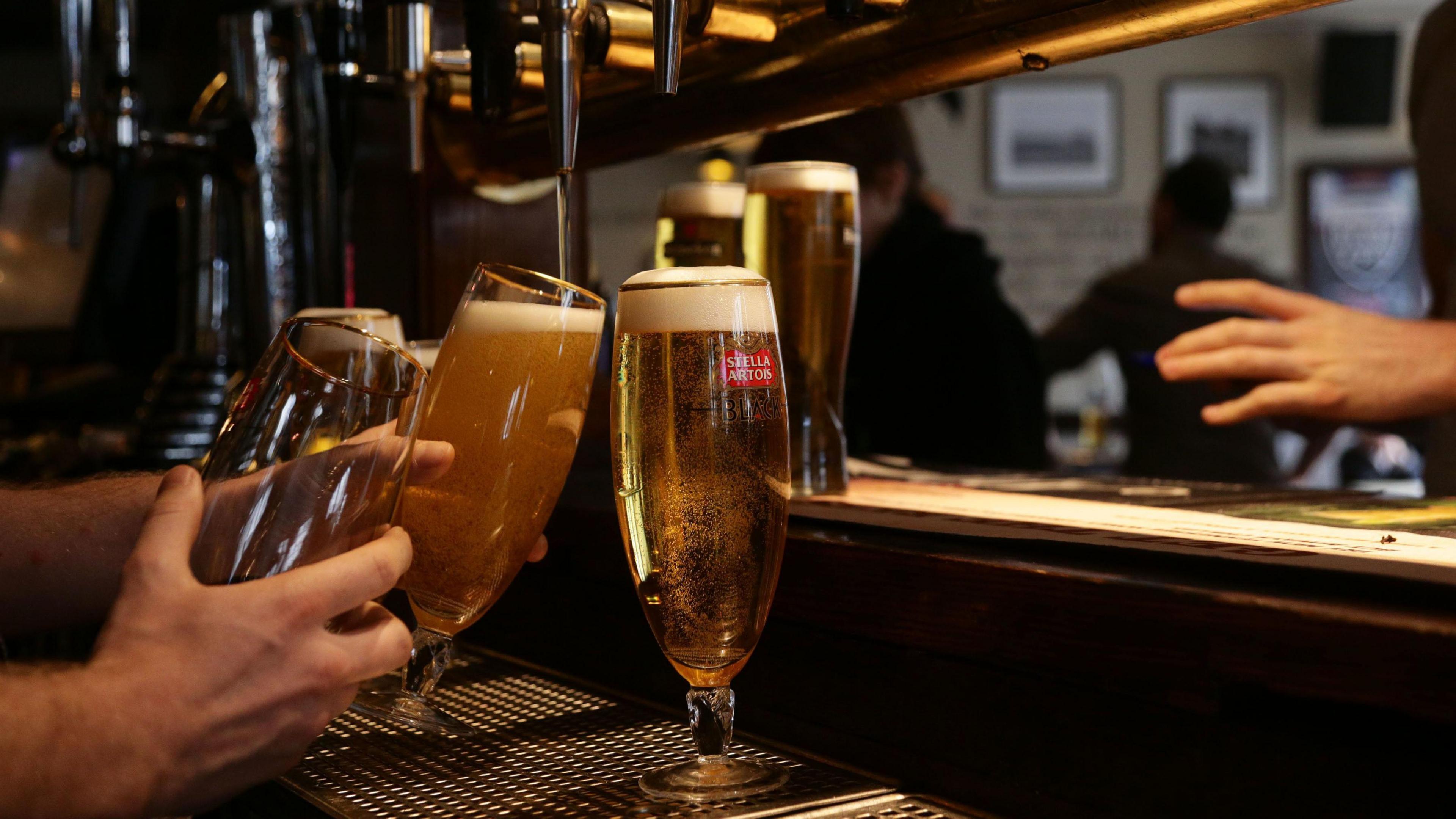Jersey's horse racing future is stuck on the fence

There are calls for riders and horse grooms to get work permits in Jersey
At a glance
A shortage of skilled horse riders and trainers in Jersey is putting the future of the Jersey Race Club at risk, bosses say
The club and others want riders from outside the Common Travel Area to be given permits to work in Jersey for the racing season
Due to the cost of operating and lack of suitable stables, trainers have given up - leaving the island with only two major trainers
- Published
The future of horse racing in Jersey is in jeopardy due to a lack of skilled riders and trainers, the island's race club says.
The Jersey Race Club said it wanted specially skilled racing grooms and trainers from across the world to be granted work permits, which would mean they could live and work locally for the racing season.
Chairman Jim Cantle said the club was in crisis following a national shortage of jockeys.
The current system for permits operates on a case-by-case basis. However, this approach has become a point of contention, leading to an appeal by the Channel Islands Horseracing Authority (CIHA).

Jonathan Perrée (right), of the Channel Islands Horseracing Association, wants a policy overhaul
Skilled riders from outside the Common Travel Area, external (CTA) brought a unique set of expertise and contributed significantly to the competitive nature of the races, race club bosses said.
The absence of such riders could jeopardize the club's future, they added.
Australian citizen and groom Stuart was granted a work permit for this season following an appeal by the Channel Islands Horseracing Association.
He said people were not getting into the sport because of the "long hours, the money's not great and it's everyday".
He said: "It's full on - it's not an easy job."

The horse racing community remains hopeful for a positive resolution that will secure the future of the sport
Minister for Home Affairs Mary Le Hegarat said the employment of a racing groom had been added to the work permit policy, but added that not all roles listed under that occupation would qualify for a skilled work permit.
The department said that was because applicants must meet all its criteria, including an English language requirement, a minimum salary of £30,000 annually and relevant qualifications to fulfil the role.
Jonathan Perrée, president of CIHA, said he wanted a policy overhaul, drawing parallels with successful models in other professional sports such as rugby, where seasonal permits were granted.
He said: "I would like to see a unilateral approach so that other yards that are operating in the islands can employ people from outside the Common Travel Area.
"There is a shortage of racing staff in the United Kingdom, so everybody is going to be looking to get racing yards and grooms from overseas."
Mr Cantle said customs bosses and the government needed to offer their support and recognise that jockeys were sportspeople.
He said: "We are fully aware of the crisis on island of staffing anything, but racing, because we need specialist people, is in more difficulty than a lot of the industries."
Follow BBC Jersey on X (formerly Twitter), external and Facebook, external. Send your story ideas to channel.islands@bbc.co.uk, external.
Related topics
- Published12 October 2023

- Published5 December 2023
